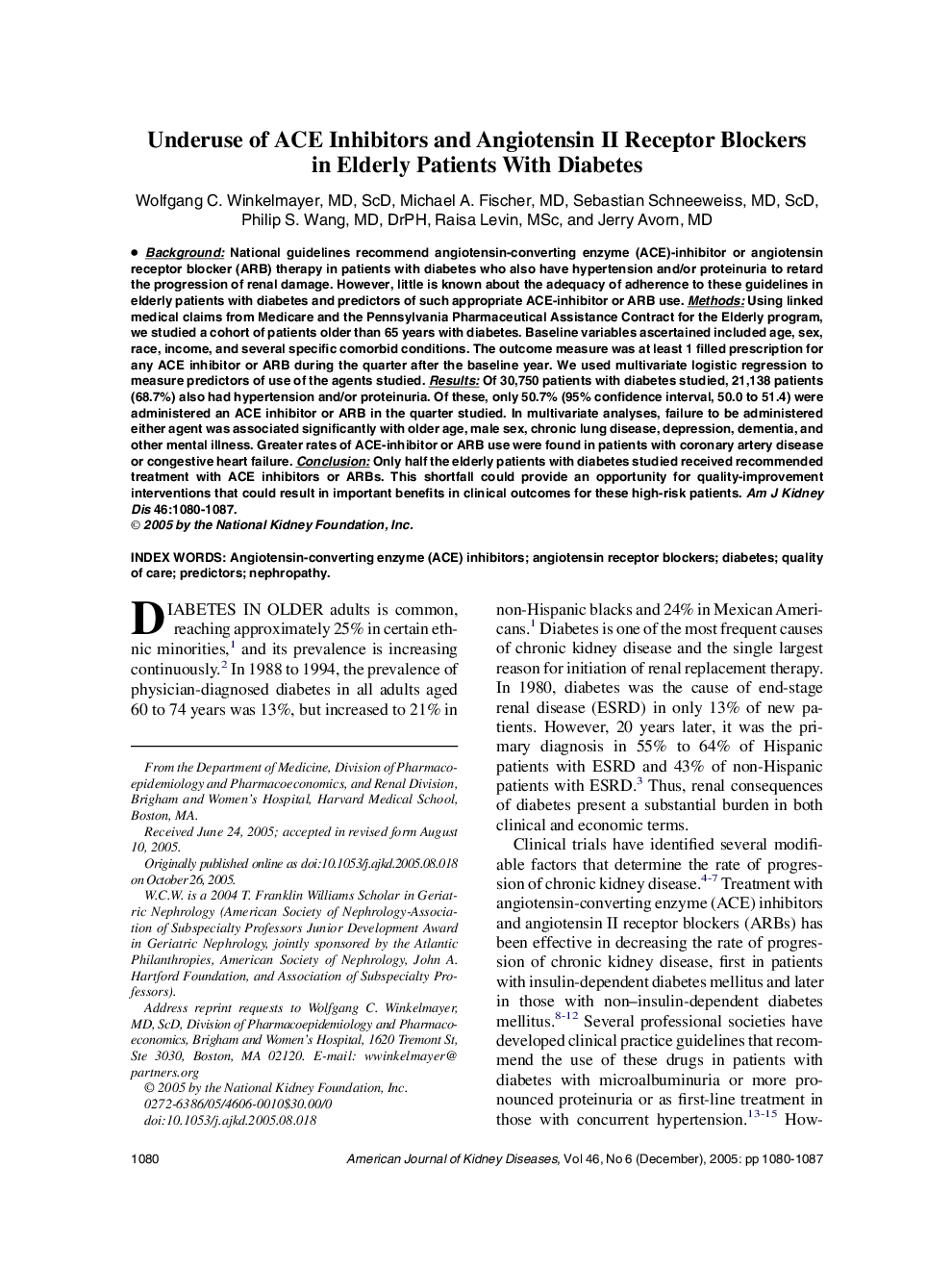| Article ID | Journal | Published Year | Pages | File Type |
|---|---|---|---|---|
| 10047289 | American Journal of Kidney Diseases | 2005 | 8 Pages |
Abstract
Background: National guidelines recommend angiotensin-converting enzyme (ACE)-inhibitor or angiotensin receptor blocker (ARB) therapy in patients with diabetes who also have hypertension and/or proteinuria to retard the progression of renal damage. However, little is known about the adequacy of adherence to these guidelines in elderly patients with diabetes and predictors of such appropriate ACE-inhibitor or ARB use. Methods: Using linked medical claims from Medicare and the Pennsylvania Pharmaceutical Assistance Contract for the Elderly program, we studied a cohort of patients older than 65 years with diabetes. Baseline variables ascertained included age, sex, race, income, and several specific comorbid conditions. The outcome measure was at least 1 filled prescription for any ACE inhibitor or ARB during the quarter after the baseline year. We used multivariate logistic regression to measure predictors of use of the agents studied. Results: Of 30,750 patients with diabetes studied, 21,138 patients (68.7%) also had hypertension and/or proteinuria. Of these, only 50.7% (95% confidence interval, 50.0 to 51.4) were administered an ACE inhibitor or ARB in the quarter studied. In multivariate analyses, failure to be administered either agent was associated significantly with older age, male sex, chronic lung disease, depression, dementia, and other mental illness. Greater rates of ACE-inhibitor or ARB use were found in patients with coronary artery disease or congestive heart failure. Conclusion: Only half the elderly patients with diabetes studied received recommended treatment with ACE inhibitors or ARBs. This shortfall could provide an opportunity for quality-improvement interventions that could result in important benefits in clinical outcomes for these high-risk patients.
Keywords
Related Topics
Health Sciences
Medicine and Dentistry
Nephrology
Authors
Wolfgang C. MD, ScD, Michael A. MD, Sebastian MD, ScD, Philip S. MD, DrPH, Raisa MSc, Jerry MD,
